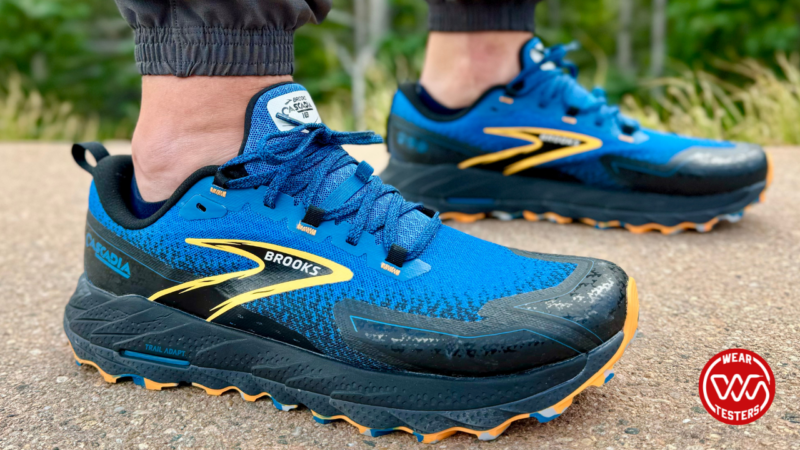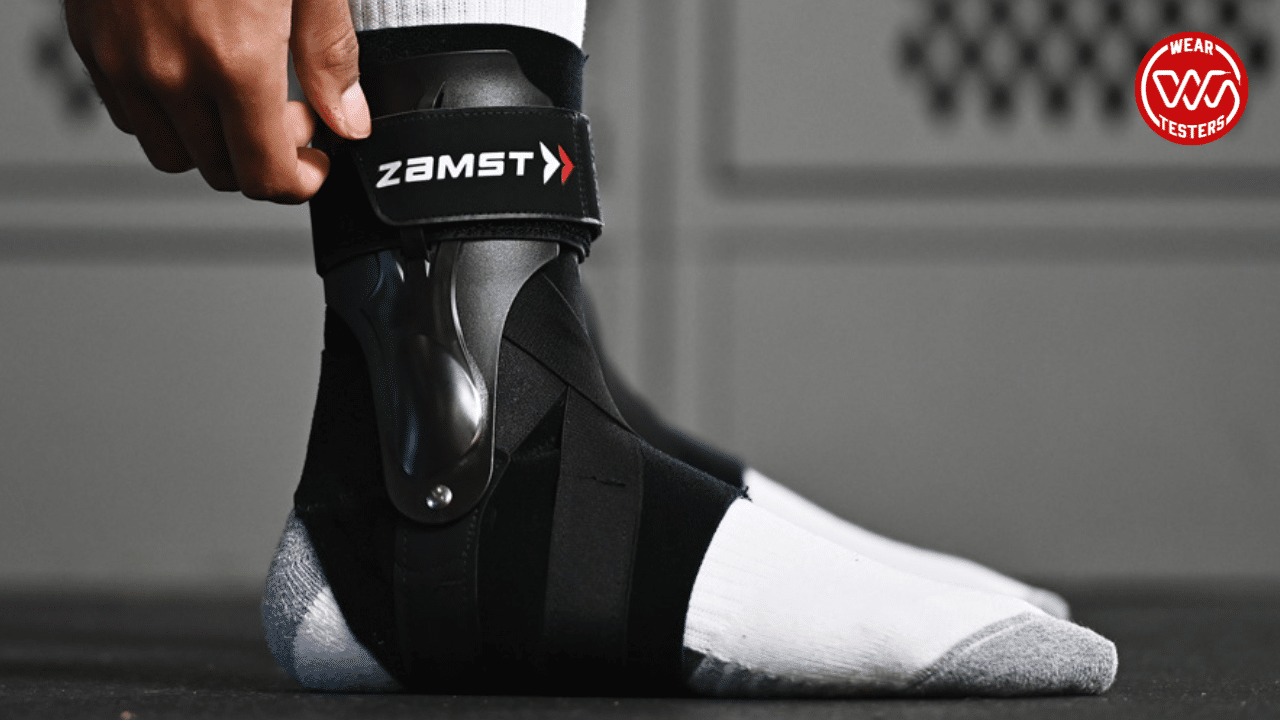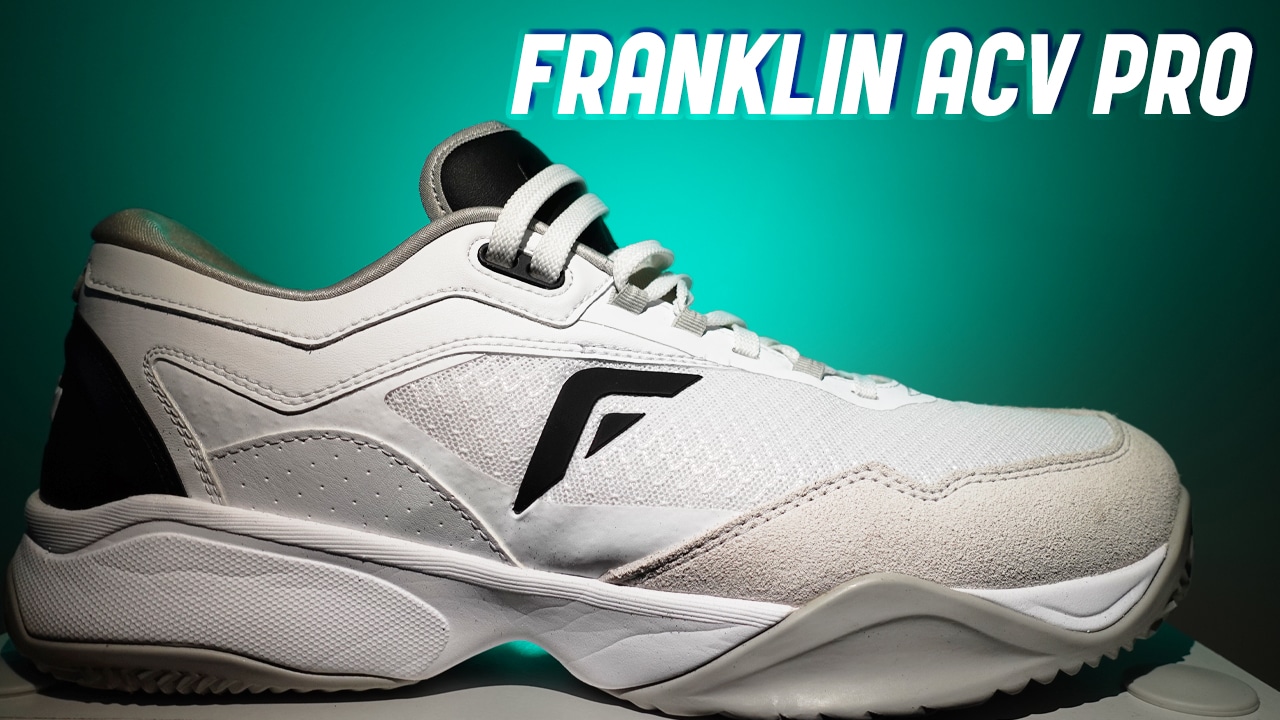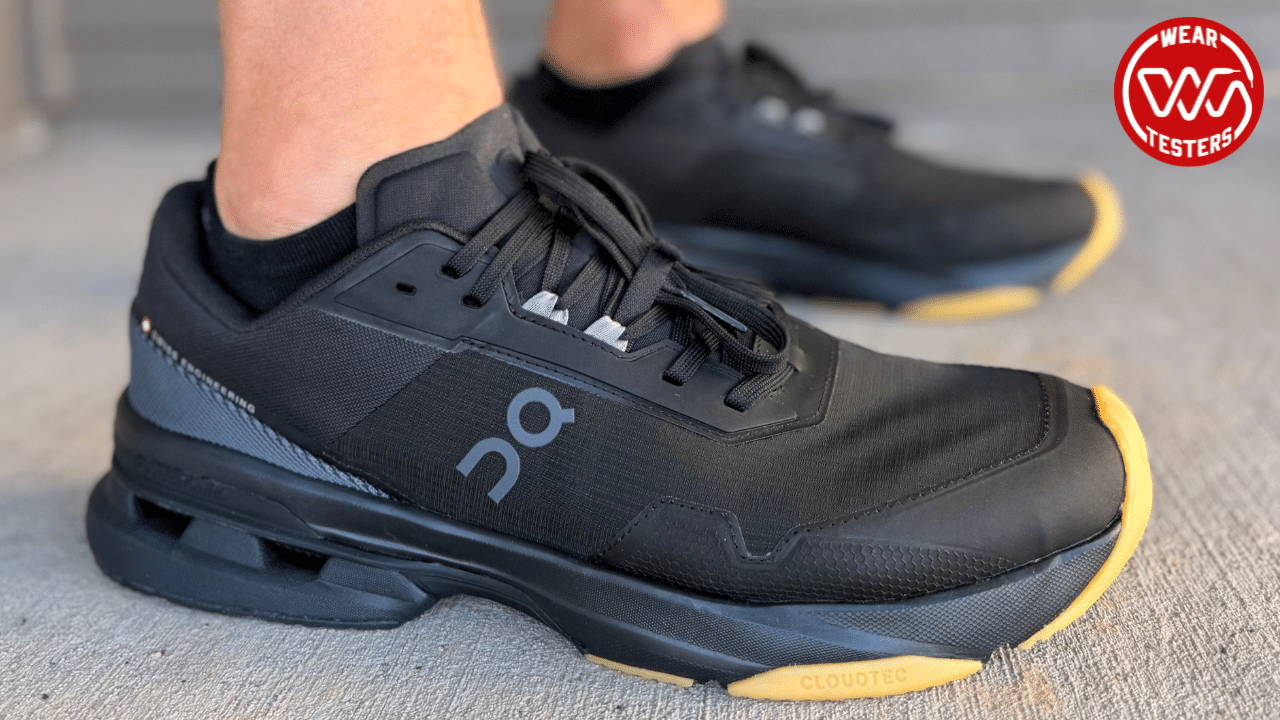The Brooks Cascadia 18 isn’t a significant change from the Cascadia 17 (which was a hefty update) and continues to be a steady and dependable trail running or hiking shoe. If you’re not familiar with the Cascadia line or last year’s version, we collected our thoughts in a full performance review. Let’s do this…
Brooks Cascadia 18
Price: $140
Weight: Men’s 11.3 oz., Women’s 10.1 oz.
Drop: 8mm
Sizing: True to size
- Rundown: The Cascadia has seen 18 versions for a reason. It’s a consistent, reliable, and stable shoe that delivers on modest promises. With a reasonable price point, the Brooks Cascadia 18 is worth it for those needing a durable shoe for mountainous terrain.
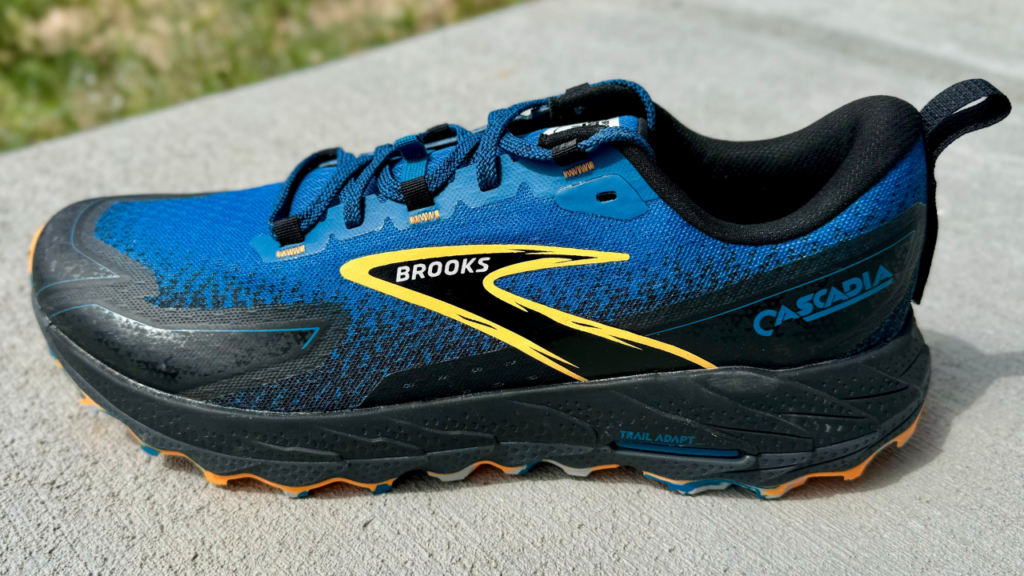
Midsole
The Brooks Cascadia 18 midsole sees a slight update from the 17, with the footbed sitting lower inside the shoe to upgrade the stability and ground feel. Brooks opts for an integrated midsole on the Cascadia 18, which consists of a rock plate between two layers of DNA Loft V2 foam. This midsole/foam is nothing flashy; it’s not speedy or bouncy, but it does create a comfortable, soft underfoot feel that will keep runners comfortable over uncertain terrain.
The cushioning is more towards neutral. The Cascadia 18 doesn’t have the all day comfort of the Caldera 7, but it offers runner some softness while allowing you to stay close to the ground. I enjoy the stability the integrated midsole offers when I’m not going for a long day. It’s more than enough to protect my feet from rocky terrain.
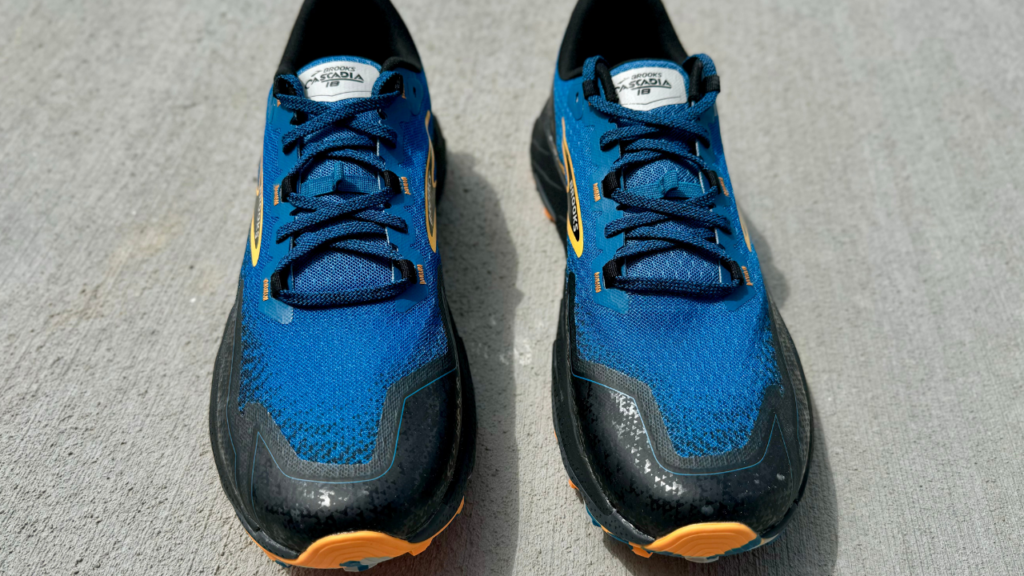
Upper
Brooks updated the upper to provide a lighter, more breathable mesh that allows moisture to drain and provides airflow to the feet on warmer days. I like the fit and the upper secures nicely around the foot. Several overlays are added around the shoe in vulnerable areas to provide that extra protection. A gusseted tongue and padded heel collar add comfort and the ability to lock your foot.
I really enjoy the lacing pattern and didn’t feel any pressure when going tight on the top of my foot due to a padded tongue. All in all, it’s a comfier upper. A little on the beefier side, so you aren’t going to feel as light and fast; but where you sacrifice weight, you’ll add in stability and comfort.
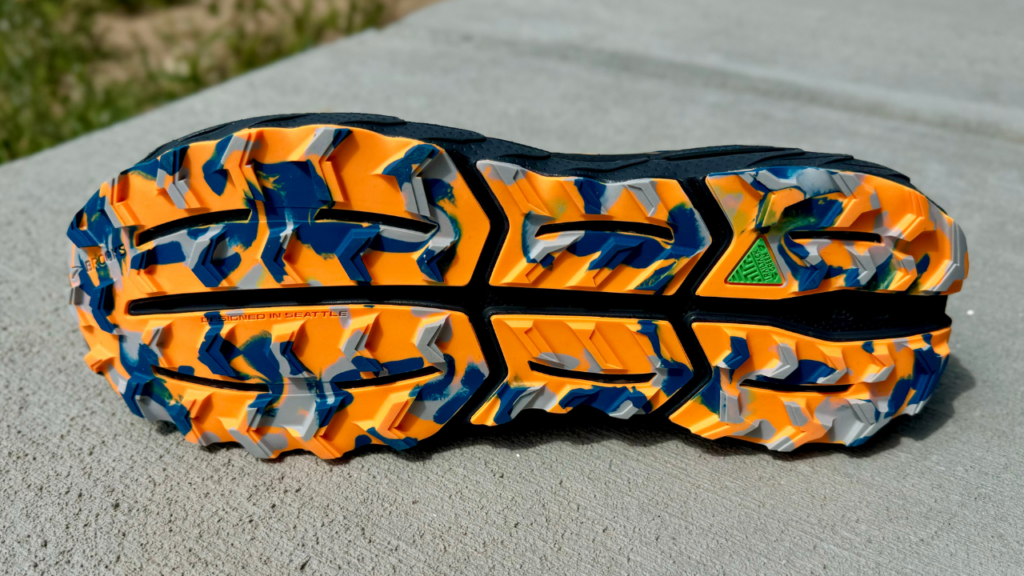
Outsole
The Brooks Trail Adapt System uses a TrailTack Green (made from 25% recycled materials) outsole with 4.5mm lugs. The outsole is composed of 6 different “pods” or sections, instead of one whole rubber piece. The multi-piece outsole allows for flexibility on the shoe and offers runners more natural movement when running over uneven terrain.
I’m naturally a little skeptical of this type of technology, but I do believe it provides a little bit of flex to move with your feet – this is all an effort to solidify the Brooks Cascadia 18 as a stable shoe. The pod outsole also allows for grooves in the outsole that help drain mud from the shoe. I like the TrailTack rubber and have never had an issue. I took the Cascadia 17 out in the high alpine wilderness of Utah and have done the same with the 18. The zonal outsole inspires confidence and stability.
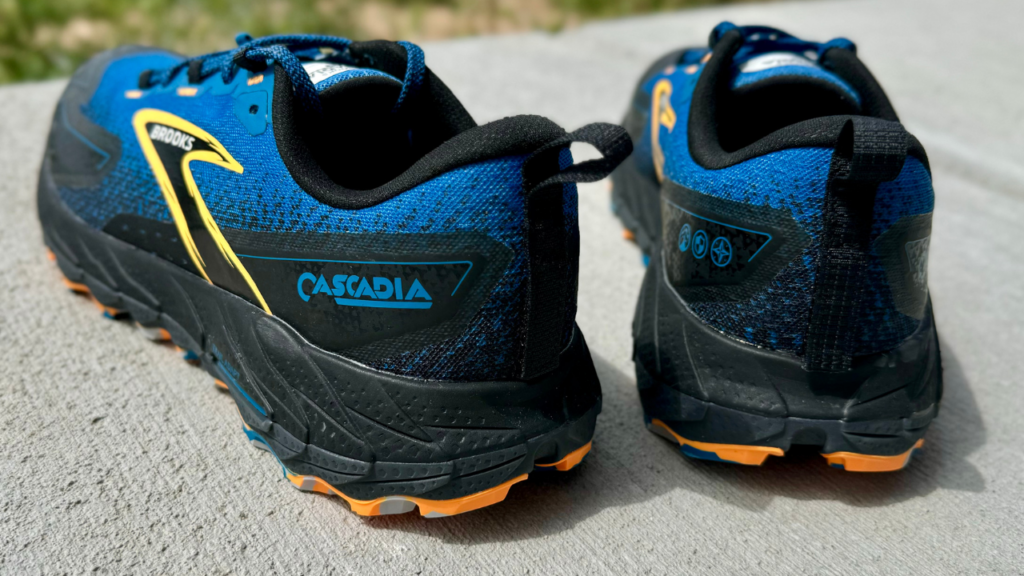
Is the Brooks Cascadia 18 wide foot friendly?
Yes, the Brooks Cascadia 18 is spacious and Brooks offers a wide version of the shoe for those that need even more room.
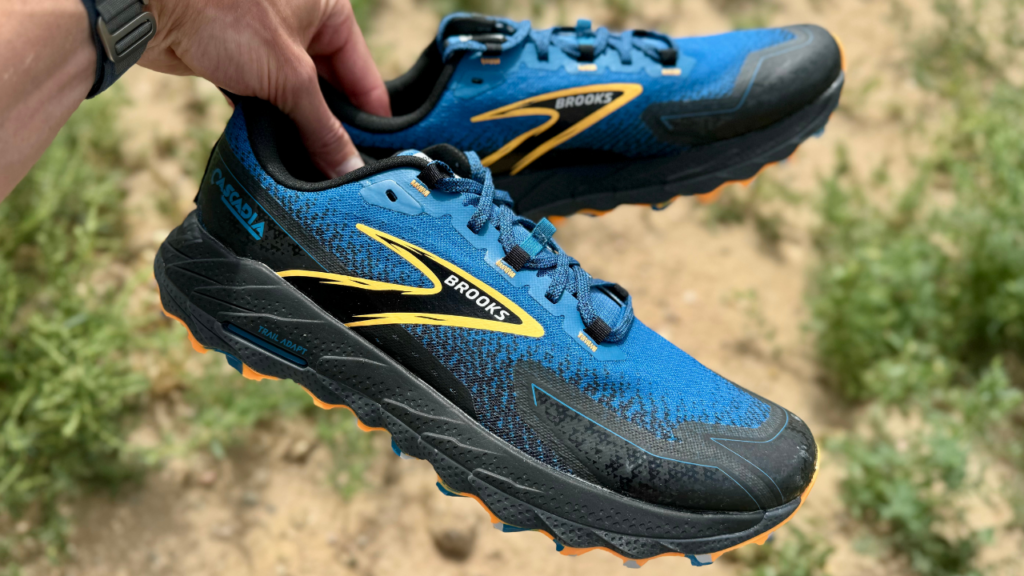
Is the Brooks Cascadia 18 worth $140?
Yes! The Cascadia 18 is worth it. For trail runners or hikers who like to have one shoe for everything, the Cascadia 18 is worth the cost, save ultra long efforts.
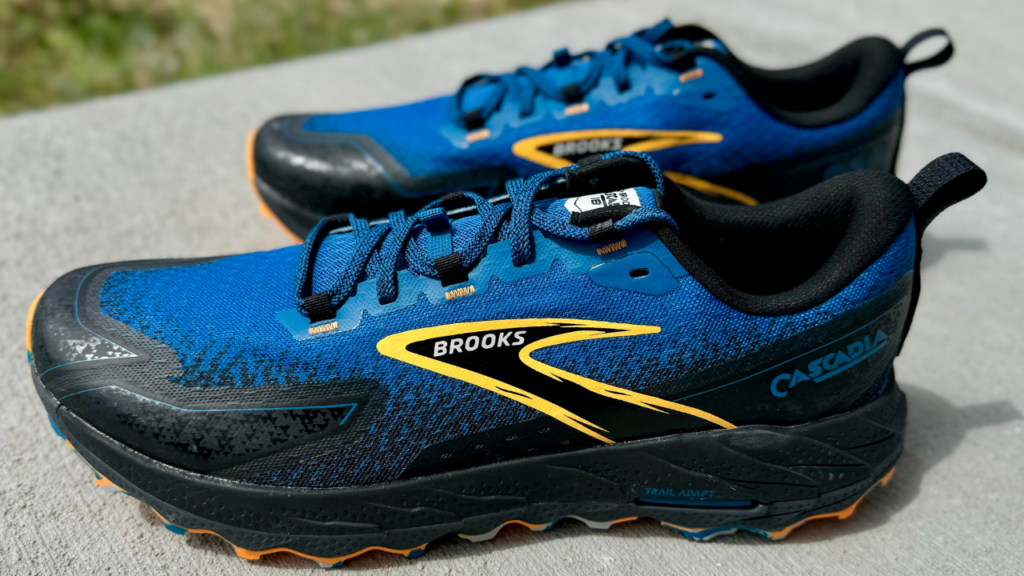
Cons
There aren’t a lot of Cons with the Brooks Cascadia 18. You get what you pay for here, in the sense that it’s not a high-performance shoe by any means so don’t expect to be dazzled and shocked. The Cascadia 18 is also on the heavier side, so it can feel a bit clunky if you’re used to something lighter and more agile. Finally, it’s not the best for ultra long efforts but can do them if needed.
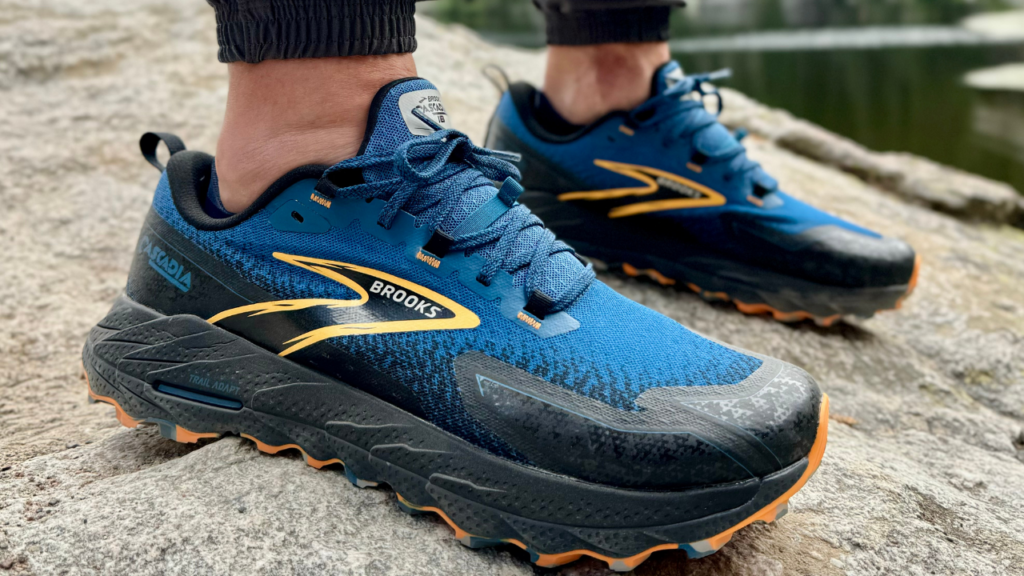
Brooks Cascadia 18 Summary
The Brooks Cascadia 18 is an honest workhorse; it’s the yeoman’s shoe, non-flashy, but determined to provide for you in a humble way. The pinnacle of this shoe is adaptability and stability. It’s comfortable, not only in the sense of feeling, but mentally, it’s an easy choice. I like the trail adapt system and the upgraded, dropped footbed. It provides stability and confidence in tougher terrain. These shoes are great in any rotation and can fill the void if you’re in need of a versatile, durable, beater shoe.
Brooks Cascadia 18 Rating
How does the Author Run?
Sam Lohse (age 28, 6’0″, 170 lbs): Runs daily, sometimes morning/night doubles, with one rest day a week (typically). Hangs right around 40-50 miles a week in general unless in race-specific training. Races distances from 50K to 100 miles, almost always on the trails.
Disclosure
While Brooks did send a pair of the Cascadia 18 to facilitate this review, the company had no involvement in this review, didn’t receive an advance look at it, and has not attempted to influence it.

